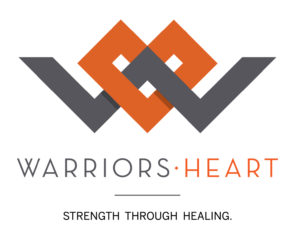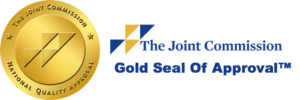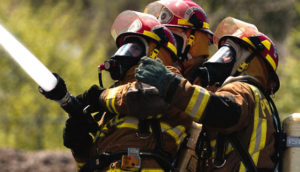By: Robert Avsec, Executive Fire Officer
Once again, I’ve had the wonderful opportunity to participate in a meeting of the Honorary Board of Advisors  for the Operation Warriors Heart Foundation (the foundation) just outside of Bandera, Texas.
for the Operation Warriors Heart Foundation (the foundation) just outside of Bandera, Texas.
This marks my third trip to Warriors Heart home to the premiere residential treatment facility where active duty warfighters and veterans, as well as fire, law enforcement, and EMS personnel can find the treatment for their drug and alcohol addiction, PTSD, and TBI (traumatic brain injury). In the interest of brevity, I’ll use the term warrior to represent all those populations in the rest of this post.
The primary goal of the foundation (a registered 501(c) nonprofit organization) is to support Warriors Heart—the first private, fully licensed, and dedicated residential treatment facility for the healing of our nation’s warriors–in meeting its mission. And that’s the only populations that they serve (Note I said “populations”—that includes firefighters and EMS personnel and law enforcement officers. Just want to make that clear!).
And what is the WH mission? “Bring everyone home.” Bringing home the warrior who’s lost his or her way in life due to the psychological trauma that they’ve experience, whether that trauma was suffered in combat or fighting fires or fighting crime or caring for those suffering from injury or disease.
The Operation Warriors Heart Foundation
The mission of the foundation is two-fold. First, promote and amplify information about what WH has to offer and how a warrior can get those services. The second is to raise funds so that no warrior who needs WH is ever turned away due to lack of ability to pay (Which is a big deal in many cases because in too many scenarios the warrior has already “burned down the house”: they have no money, they have no insurance, and they have no support group).
What Warriors Heart Provides
WH provides four types of service to warriors: Detox; In-Patient Treatment; Out-Patient Treatment; and Sober Living. Many warriors (Whom I’ll now refer to as clients) arrive at WH suffering from addition to drugs or alcohol or both. So, a ten-day, medically supervised detox is their first step in their healing process.
According to Tom Spooner, one of WH’s three founders, a U.S. Army vet, and a survivor of PTSD and TBI himself, “We can’t begin the process of bringing the warrior home—that is treating their PTSD or TBI—until we’ve helped them gain sobriety. That addiction is what they’ve turned to as a coping mechanism for the trauma that’s going on inside their head.”

WH is currently the only facility in the U.S. that’s providing medical and psychological care to individual’s suffering from drug and alcohol addiction along with PTSD and TBI.
In-patient care at WH provides clients with 24/7 treatment that includes daily medical monitoring, individual therapy and group therapy; what makes group therapy unique at WH is that everyone in the group is a warrior who’s trying to “get home.”
In addition to therapy, every client is assigned to a team (to replicate the team environment that they knew in

In 2016, Warriors Heart received the Joint Commission’s Gold Seal of Approval. The Joint Commission is a United States-based nonprofit tax-exempt 501 organization that accredits more than 21,000 US health care organizations and programs.
their military or public safety role). Each team is composed of a “mix” of clients: some are nearing completion of the 42-day program; some are in the middle of their stay; and some are just beginning their journey home.
“Those clients nearing the end of their treatment are expected to mentor the newer members of their team,” said Josh Lannon, another of WH’s founders and himself a recovering alcoholic. “Mentoring is a key component of what we do here to help bring warriors home.
Teams participate in group therapy together and they also engage in daily team tasks that also promote the sense of team and sense of accomplishing objectives as a team that is in a warrior’s DNA. Those tasks—which rotate daily—include:
- Preparing and breaking down the Dining Hall line for meals;
- Cleaning the Recreation Facility;
- Cleaning the Pool and Laundry areas;
- Cleaning the computer room that’s used by clients; and
- Cleaning the Clinical Treatment area.
WH’s Intensive Outpatient Program is a four-week minimum course. The substance abuse and mental health program is designed to help clients overcome personal issues and barriers to sobriety while allowing them to remain in their own home, sober living or other supportive housing.
The outpatient program is led by an experienced team of licensed addiction and behavioral health professionals who integrate evidence-based approaches that treat the whole person and not just symptoms. WH does not segregate chemical dependency treatment and dual diagnosis (PTSD and TBI) clients; they treat the whole person together.
Sober Living

The Sober Living clients are lodged in modular homes that can accommodate 8 clients per home. The “home-like” atmosphere promotes connection and support, keys to continued sobriety.
The latest addition to what WH offers its clients is its Sober Living Program, a community of men and women who share a common desire to stay clean and sober. According to Lisa Lannon, the third founder of WH and wife of Josh Lannon, “We designed the sober living program to provide a step-down level of care to warriors who have completed an inpatient program or have at least 42 days of continuous sobriety.”
Research done by the National Institute of Health has found that individuals who live in a sober living home have better long-term outcomes than those of people who don’t have access to an environment that supports sustained recovery.
WH’s Sober Living community gives clients the opportunity to ease into a healthy lifestyle which they do while experiencing real life responsibilities, gaining volunteering and living skills, and practicing valuable work. They learn to practice and reinforce the lessons and habits that they gained while in treatment.
Sober living clients are expected to spend a minimum of 20-hours per week either working or volunteering for public and private organizations in the Bandera area. They return to the WH facilities where they have their own lodging that’s physically separated from other lodging facilities on campus so that they can have “some space.”
When back on campus, Sober Living clients work with counselors individually, and in group therapy sessions, where they can form friendships, support each other in their sobriety, and build personal support networks. They receive support from the main Warriors Heart facility along with the sober living manager and house managers.
Expecting a person in crisis to know what they should do to get help is like expecting a drowning person to rescue themselves. It’s not going to happen.
If you or someone you love is a firefighter, law enforcement officer, EMS provider who’s “lost your way” and is using drugs or alcohol to cope with post traumatic stress, PTSD, or TBI, contact Warriors Heart today at (844) 448-2567. There’s someone on the other end of that phone line 24/7/365!

A special note for firefighters. We must become better at recognizing our vulnerabilities whether it’s finding ourselves in a Mayday situation or seeking help with drug/alcohol addiction, PTSD, or TBI.
For more information about Warriors Heart visit their website at www.WarriorsHeart.com
The Operation Warriors Heart Foundation is a 501(c) nonprofit organization that raises money to provide scholarships for WH clients who have no financial means or insurance to pay for their care.
Visit the foundation’s website at https://www.warriorsheartfoundation.org/ to learn more about how you or you company or organization can contribute financially to WH’s mission to “Bring every warrior home.”
 Fire & EMS Leader Pro The job of old firefighters is to teach young firefighters how to become old firefighters!
Fire & EMS Leader Pro The job of old firefighters is to teach young firefighters how to become old firefighters!